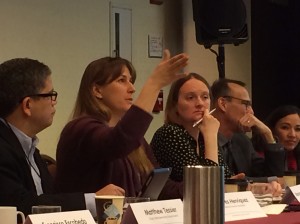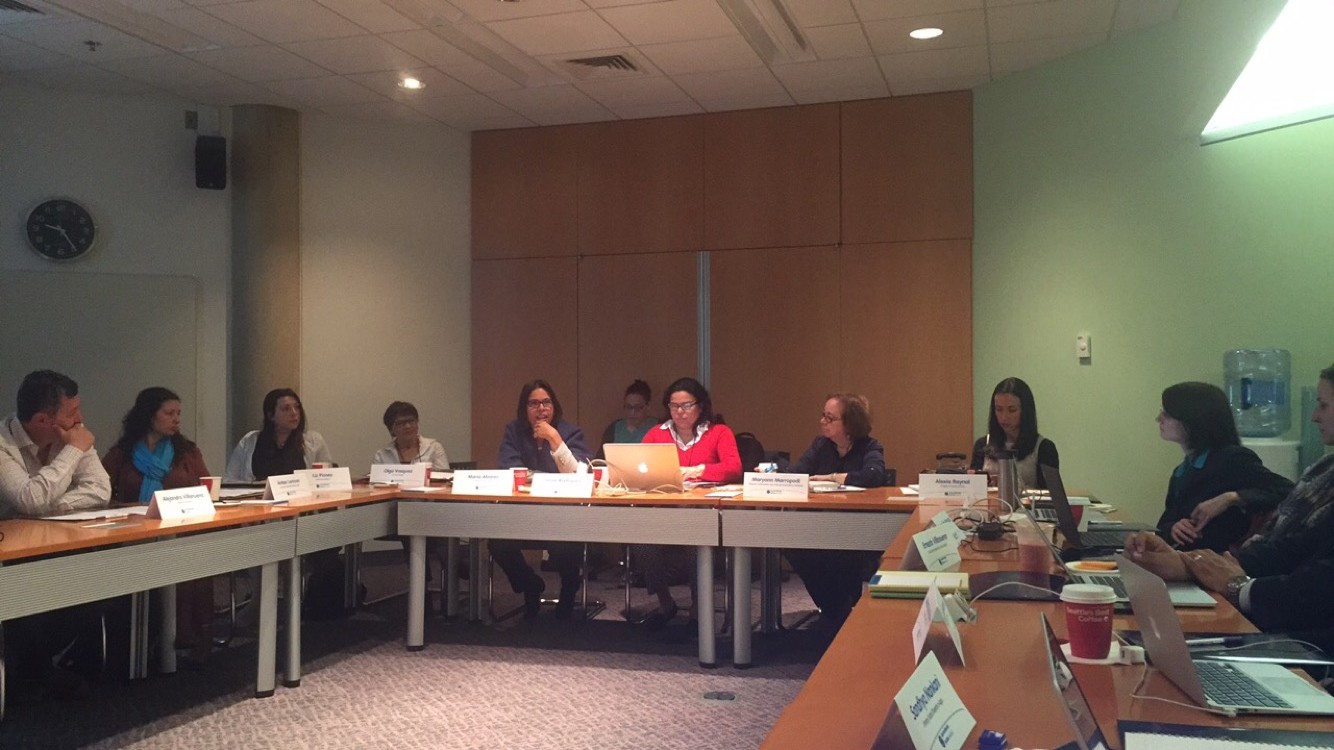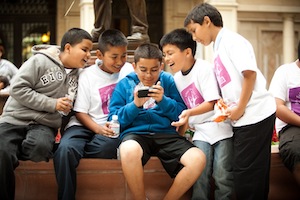The Aprendiendo Juntos (“Learning Together”) Council is a multi-sector group of researchers, practitioners, and policy experts who seek to identify new models and practical strategies to improve educational outcomes for Hispanic-Latino families, through the wise deployment of digital technologies.
In June 2012, the National Center for Families Learning, the Joan Ganz Cooney Center, and the National Council of La Raza convened the first Hispanic-Latino Families and Digital Technologies Forum to discuss the ways in which Hispanic-Latino families engage with and learn from communication technologies. A subset of forum participants met in April of 2013 for the first time as a working group and most recently in February 2014 to continue the discussion and implement an action plan to deepen understanding of the important contextual factors surrounding Hispanic-Latino families and digital technologies.

The 2014 convening included a diverse array of participants, from university researchers and policymakers to school district leaders and educational media designers. The Aprendiendo Juntos Council was also excited to extend invitations to new members whose influential work and interests could positively impact the Council’s future projects. These new members included Bruce Fuller of UC Berkeley, Mariana Diaz-Wionczek of Nickelodeon, Kris Gutierrez of University of Colorado, Boulder, Rick Fry of Pew Hispanic Center, and Eugene Garcia of Arizona State University. New council members had the opportunity to share relevant research such as current demographic reports of Hispanic-Latino children, the developmental implications of dual-language learning, and incorporating Pan-Latino identity into media products to promote the inclusion of diverse groups within the Hispanic-Latino population.
Existing Aprendiendo Juntos Council members presented progress made on projects conceived at last year’s convening. Ellen Wartella of Northwestern University and June Lee of Sesame Workshop both shared survey data that examine technology and educational media use in Hispanic-Latino families. Vikki Katz of Rutgers University presented findings from her work with Mexican immigrant families in Chula Vista, CA who took part in Connect2Compete, a program that provides affordable Internet connection to families who qualify for the National School Lunch Program. Amber Levinson of Stanford University discussed findings from her dissertation study, “Tapping In,” which examines joint media engagement and learning in Spanish-speaking homes, especially around the introduction of a new technology device (i.e, iPad).
Council members found it encouraging and motivational to see such rapid progress on these studies since the last meeting, and were eager to design additional studies and initiatives to enhance Aprendiendo Juntos work. Based on discussions from this convening, council members committed to making research more accessible to parents and educators, refining research methods to accommodate sub-cultural variations, and translating research into usable information for content producers.
The 2014 convening was extremely successful in shaping the Aprendiendo Jutnos Council’s goals, moving its work forward, and also in establishing key considerations that are important for anyone conducting research with and designing media-based experiences for Hispanic-Latino families:
- How can we better design research and content to consider the extremely diverse populations and cultures within the broader “Hispanic-Latino” category?
- Emphasizing strengths and advantages: In much of the literature on topics surrounding Hispanic-Latino families, issues are often approached in a way that may unintentionally emphasize perceived disadvantages. However, Hispanic-Latino families and culture bring several advantages to the table that must be celebrated and leveraged, especially in terms of family connection and the high value placed on learning.
- What is educational? Across council member presentations, it seemed that Hispanic-Latino families’ definition of “educational media” was fairly flexible. What kinds of media and technology “qualify” as educational? Is this definition shaped by those designing it, or those who interact with and consume it? How can we make the idea of “educational media” more seamless between designers and users?
- What are the policy implications of the work of the Aprendiendo Juntos Council and others who are interested in similar topics? How can we better inform policy makers?
Aprendiendo Juntos Council members are actively working together to develop field studies, methods, and task forces to address the above considerations.




